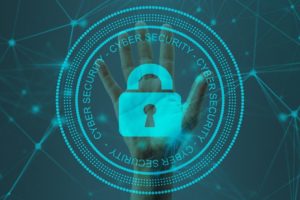We currently offer National 5 and Higher Computing Science. As well as a NPA Cyber Security.

For decades people have imagined ways to improve life through technology. Today computers are an integral part of our world influencing the way we listen to music, communicate, take photos and use information. The knowledge students have in our school is vast and what they can do is amazing. Their future is up to them – all they need is key skills and encouragement.
Computing Science is a new course which will introduce students to many areas using computing. These areas include exciting developments like gaming, robotics and computer apps. Our new course is motivating and challenging. In Williamwood we want to change the way we teach Computing and make our course up-to-date, more hands-on, enjoyable and open students eyes to the possibilities of this amazing technology.
Computers are everywhere!
- Sport – research, monitoring training, preformance analysis
- Medicine – pharmacology, medical coding, cyber forensics
- Entertainment – films, music, pictures, games
- Communication – mobile phones, e-mail, Skype, Facebook
- Transport – microchips in cars, autopilot in planes, airports
A pathway to your future! Computer Science is an established area of study following through school, colleges and Universities leading into a promising, successful and adventurous career. This is a growing industry and is open to everyone.
Computer Science Engineering video
Computer Science jobs
Course Details: National 4 and 5 information
National 4 Level Computing Studies (leads into National 5 level)
National 5 Computing Studies (leads into Higher level)
Computer Science trips:
Riverside Museum – Glasgow
National 5 & Higher
Both courses comprise of four areas of study:
Software design and development
Candidates develop knowledge and understanding of advanced concepts and practical problem-solving skills in software design and development. They do this by using appropriate modular software development environments. Candidates develop modular programming and computational-thinking skills by analysing, designing, implementing, testing, and evaluating practical solutions and explaining how these programs work. They use their knowledge of data types and constructs to create efficient programs to solve advanced
problems.
Computer systems
Candidates develop their understanding of how data and instructions are stored in binary form and factors affecting system performance. They gain an awareness of the environmental impact of intelligent systems, as well as the security risks, precautions and laws that can protect computer systems.
Database design and development
Candidates develop knowledge, understanding and advanced practical problem-solving skills in database design and development. They do this through a range of practical tasks, using a minimum of three linked tables and implemented in SQL. Candidates apply computational thinking skills to analyse, design, implement, test, and evaluate practical solutions, using a range of development tools. Candidates apply interpretation skills to tasks involving some
complex features in both familiar and new contexts.
Web design and development
Candidates develop knowledge, understanding and advanced practical problem-solving skills in web design and development. They do this through a range of practical and investigative tasks. Candidates apply computational-thinking skills to analyse, design, implement, test, and evaluate practical solutions to web-based problems, using a range of development tools including HTML, Cascading Style Sheets (CSS) and JavaScript. Candidates apply interpretation skills to tasks involving some complex features in both familiar and new contexts.
Cyber Security (Levels 5 & 6)
The NPA in Cybersecurity is specifically aimed at providing a skills pipeline into the cyber security industry. The focus of the course is to produce knowledgeable and skilled individuals who are aware of the potential misuses of, and unauthorised access to, computer systems but who use these competences for legal and ethical purposes.
security industry. The focus of the course is to produce knowledgeable and skilled individuals who are aware of the potential misuses of, and unauthorised access to, computer systems but who use these competences for legal and ethical purposes.
The course is broken down into 3 units:
Data Security
- Describes how personal data can be shared on Social Media
- Risks associated with storing Data for Organisations
- Technologies used by business to protect customer data
Digital Forensics
- Examine and recreate crime scenes.
- Explain processes and job roles in relation to Digital Forensics.
- Learn how to forensically examine a storage device.
Ethical Hacking
- Perform penetration tests on a computer system in a controlled environment.
- Analyse current trends in Cybercrime.
- Evaluate current legislation relating to Cybercrime.
